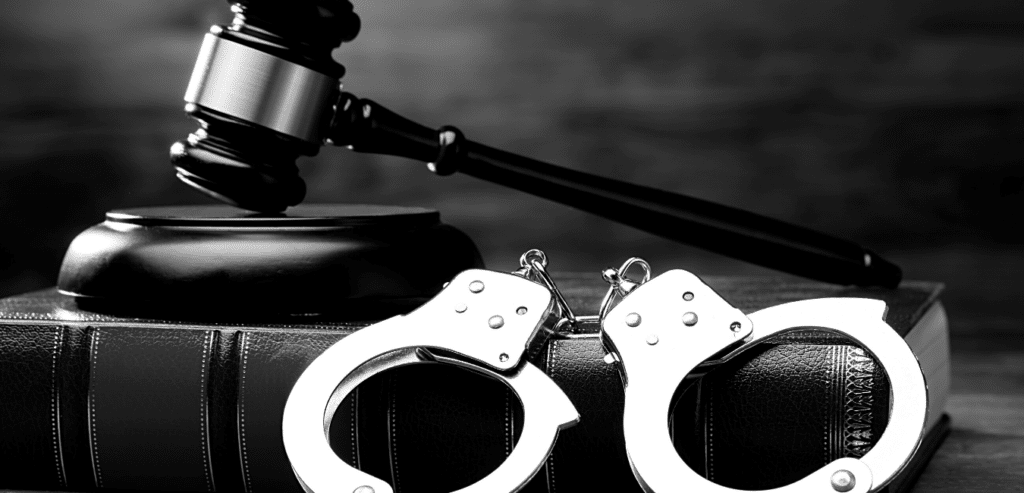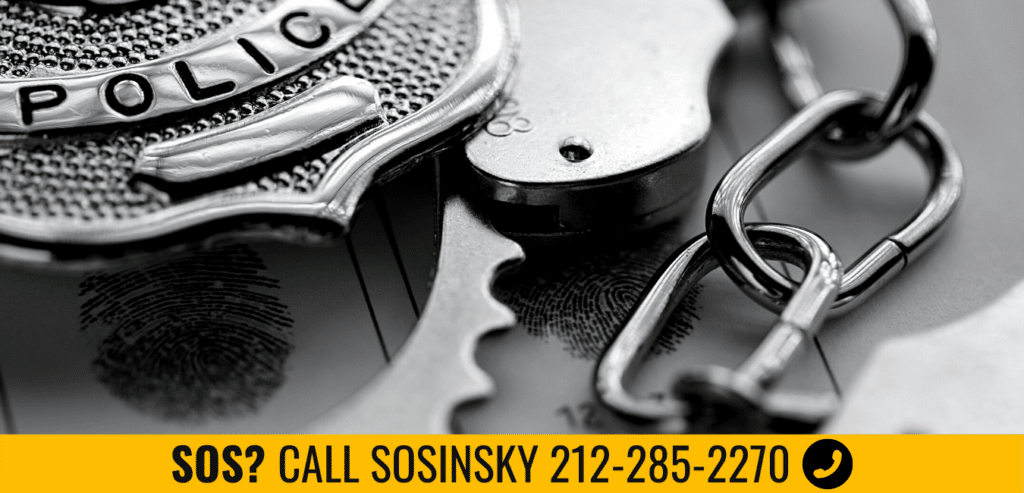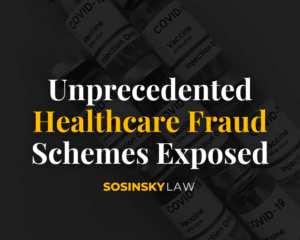NYC Federal Child Pornography Lawyer
Federal Child Pornography Defense Lawyer in New York
There are few federal charges more serious than those involving child pornography. Any conviction, regardless of the sentence, will involve sex offender registration and accompanying restrictions, for decades at least and quite possibly for the remainder of one’s life. And although the overwhelming majority of individuals charged with crimes involving child pornography have never before been in trouble with the law, nationwide statistics tell a disturbing story about the punishments for those convicted of such offenses: on average, those convicted of possessing child pornography receive more than five years in prison and those convicted of receiving or transmitting child pornography receive more than eight years in prison. Because there are crushing mandatory minimum sentences that apply to nearly every child pornography case and recommended guidelines for sentencing that are even more draconian, federal child pornography cases pose some of the greatest challenges for attorneys in their efforts to defend against these accusations or to see to it that their clients fall into that small category of those sentenced to probationary terms alone.
NYC child pornography defense lawyer Fred Sosinsky has more than three decades of experience representing those under investigation for or charged with child pornography cases in the federal courts. When involved at the earliest phases of a criminal investigation, Fred has often been able to head off the charging of his clients. For those under indictment, Fred ensures that his clients receive evaluations and treatment by the most respected experts in this field and that all evidence is scrutinized by nationally recognized digital forensic experts retained by the defense. Together, working as a team, Fred will either make the case that the feds have charged the wrong person or that his client poses little or no danger to anyone and should be continued in treatment rather than given a prison sentence. Contact Fred Sosinsky now to begin your defense.
How Are Federal Child Pornography Cases Initiated?
Prior to the advent of the internet, law enforcement was quite limited in its ability to investigate persons who possessed and traded in child pornography. However, the internet age has made criminal investigations of such individuals easy pickings for agents. Because people feel quite secure when they use their cell phones and computers in the “privacy” of their own homes, cars, or offices, and because obtaining, downloading, and even sending to others offending images and videos of minors is often as simple as clicking on a button, the ability of law enforcement to gain data from and even engage with the party involved has greatly expanded.
Thus, in recent years, agents with the Federal Bureau of Investigation or Homeland Security Investigations have turned to the following to secure evidence against those charged with child pornography offenses: downloading child pornography from the accused’s computer using such file-sharing programs as Ares, Gnutella, Kazaa or Limewire; use of undercover agents in chat rooms on Reddit or elsewhere believed to be used by those with interest in child pornography; assuming the identity of others on social media; use of government-controlled fake websites such as “Playpen” offering to distribute child pornography; encouraging email providers to regularly scan all messages for child pornography and to refer offending images to federal agents; warrantless searches of cellphones and laptops at the borders to the United States.
Of course, law enforcement may also be tipped off by computer repair technicians who observe what they believe may be illegal child pornography on devices left to them or by others who make similar observations.
Agents will obtain the internet protocol or “IP” address of the computer which it is believed accessed the illegal images and typically seek a search warrant permitting them to seize phones and computers at the location. Often, a suspect is told that they will not be arrested at that time but will, unfortunately for their sake, speak with agents about who has access to and uses the items seized — information that may be highly incriminating should he or she later be charged. A full forensic examination of all items taken by agents then follows.

What Are Federal Child Pornography Charges?
Under federal law, “child pornography” includes any picture, digital image, or video of a minor which depicts “sexually explicit conduct.” It may include even computer-generated images which are indistinguishable from those of an actual minor and images created or modified which appear to depict an actual minor. A minor under federal law is one under the age of 18. The term “sexually explicit conduct” means actual or simulated (a) sexual intercourse, including genital-genital, oral-genital, anal-genital, or oral-anal, whether between persons of the same or opposite sex; (b) bestiality; (c) masturbation; (d) sadistic or masochistic abuse; or (e) lascivious exhibition of the genitals or public area of any person. Federal law provides that visual depictions of nudity may constitute “sexually explicit conduct” if it is sufficiently sexually suggestive.
Federal law prohibits the producing, distribution, receipt, or possession of child pornography so long as the illegal image or the device used to possess, receive or distribute it, traveled in interstate or foreign commerce. The law also prohibits attempts or conspiracies to commit a child pornography offense.
Possession of Child Pornography
A person commits the federal offense of possession of child pornography when he or she knowingly possesses or accesses with intent to view, any material that contains an image of child pornography that has been transported using interstate commerce. This crime is punishable by up to ten years in prison and does not have a mandatory minimum sentence. However, it is a rare case indeed nowadays for a prosecutor to charge, at least initially, only possession of child pornography. This is so because almost all child pornography cases involve the accused’s use of computers and the internet to access the images, which implicated receipt and/or distribution charges as well.
Receipt or Distribution of Child Pornography
A person commits the federal offense of receipt or distribution of child pornography when he or she knowingly transports child pornography using interstate commerce. This crime is punishable by up to twenty (20) years in federal prison and a mandatory minimum of five years in prison.
In almost all federal cases, the use of the internet will constitute the means of transportation required under this law. Thus, when child pornography is texted, emailed, posted, or downloaded to or from the accused’s phone or computer via a peer-to-peer network, the requisite elements of receipt and distribution will be present.
Often times, a person who downloads peer-to-peer network software permitting them to access child pornography does not realize that they are also allowing others, including law enforcement, to download files from their “shared folders” and, in that process, “distribute” files from their own computer — perhaps with them being wholly unaware that this has occurred. Federal courts, however, have construed distribution to include third-party downloads of files made available through these file-sharing networks so long as the accused was generally available that this was possible.
Production of Child Pornography
The crime of producing child pornography is referred to in the federal code as the Sexual Exploitation of Children. A person commits the federal offense of sexual exploitation of children when he or she employs, uses, persuades, induces, entices, or coerces any minor to engage in any sexually explicit conduct for the purpose of producing any visual depiction of such conduct or for the purpose of transmitting a live visual depiction of such conduct. This crime is punishable by up to thirty (30) years in federal prison and has a mandatory minimum of fifteen (15) years in prison.
Of note, a person may be charged with sexual exploitation of a minor even if all of the conduct took place outside of the United States so long as the government establishes that the person intended to send the images to or make them available in the United States.

There Are Defenses to Child Pornography Charges
There are a number of potential defenses available to those charged with child pornography crimes if represented by an experienced federal child pornography defense lawyer.
First, the accused may claim that others had access to the computer or cellphone which either sent, received, or possessed images of child pornography. Working with top forensic experts, Fred Sosinsky may be able to demonstrate that there was more than one user of a computer and that there is a lack of certainty as to who may have been behind the keyboard when certain actions occurred.
Second, it is possible that offending material was not knowingly, deliberately viewed, saved, or sent from a computer or cellphone. Again, forensic experts will be able to assist in determining whether there is the type of forensic footprints present which are usually found where intentional viewing, downloading, and sharing of such child pornography has taken place. A digital forensic expert would also be able to determine whether it is possible that offending images appear due to the presence of malware or a computer virus.
Third, there may be legitimate challenges as to the age of the person seen in the charged images. On occasion, working with medical experts, it may be shown that such persons were not, or do not appear to be minors.
Fourth, there may also be legitimate questions about whether the images contain sexually explicit material. Not every photo or video of nude minors will constitute such illegal contraband.
Fifth, a successful defense may be built around a constitutional challenge to the right of law enforcement to have conducted a seizure and search of certain items allegedly containing child pornography.
Sentencing For Federal Child Pornography
As discussed above, for receipt and distribution of child pornography, there is a mandatory five-year sentence; for producing such material, there is a fifteen-year mandatory minimum sentence.
However, separate and apart from the application of mandatory minimum sentences, a court deciding upon the sentence of a person convicted of child pornography crimes must first calculate and consider the advisory federal sentencing guidelines for the offense. Because almost all convictions for child pornography offense involve the use of computers and the internet to access, receive and distribute or trade images, there is a multitude of aggravating factors that are present in almost all such cases resulting in terribly severe recommended guidelines. These factors include such things as the use of a computer to commit the offense, the number of images or files involved, whether a minor under the age of 12 is depicted, whether any image was sadistic, masochistic, or violent, whether any image was for financial gain and whether any image was distributed to a minor. Only after consideration of these factors will a federal judge turn to hear about the history and character of the accused and the circumstances that drove him or her to, likely for the first and only time in their life, violate the law in this fashion. Critical at sentencing for these crimes is educating the court about the lack of any evidence that the defendant made contact with any minor or attempted to do so. Making use of the reports of treating therapists and risk of recidivism evaluators is of paramount importance to a favorable outcome.
Sex offender registration will be mandatory upon conviction for any child pornography offense. Because several of the aggravating federal sentencing factors will also increase an offender’s score for registration purposes, it is most important that the offender be represented at the SORA hearing by skilled, experienced counsel who will push for a departure from the presumptive level. Since 2018, so too will restitution in an amount of no less than $3,000 be mandatory.
Contact An Experienced Federal Child Pornography Defense Lawyer Now
If you are under investigation or have been accused of a crime related to the possession, distribution, or production of child pornography, it is critical that you have the very best legal counsel on your side. Call NYC federal child pornography defense lawyer Fred Sosinsky today.
SOS? CONTACT SOSINSKY
NYC Criminal Defense

Unprecedented Healthcare Fraud Schemes Exposed
Unprecedented Healthcare Fraud Schemes Exposed: A Glimpse into the Recent DOJ Crackdown In a groundbreaking move, the Department of Justice has unveiled criminal charges against
